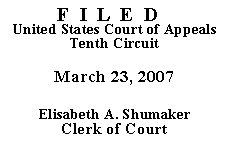

| UNITED STATES OF AMERICA, |
|
| v. | |
| LUIS ANTONIO MIRANDA, |
On July 20, 1994, defendant-appellant Luis Carlos Miranda was charged in a one-count indictment with conspiracy to possess with intent to distribute marijuana, in violation of 21 U.S.C. §§ 841(a)(1) and 846. Although the indictment indicated the alleged offense ended on December 1, 1989, a warrant for Miranda's arrest was not issued until July 20, 1994. Miranda was not arrested until November 18, 2003. Pursuant to a plea agreement entered into between Miranda and the government, Miranda pleaded guilty to a lesser included offense. He was sentenced to time served and two years' supervised release. Miranda filed a timely Notice of Appeal.
Miranda's counsel has filed a brief pursuant to Anders v. California, 386 U.S. 738 (1967), advising this court that Miranda's appeal is wholly frivolous. Accordingly, counsel also sought permission to withdraw. Under Anders, counsel may "request permission to withdraw where counsel conscientiously examines a case and determines that any appeal would be wholly frivolous." United States v. Calderon, 428 F.3d 928, 930 (10th Cir. 2005). Counsel is required to submit an "appellate brief indicating any potential appealable issues." Id. Once notified of counsel's brief, the defendant may then submit additional arguments to this court. Id. We "must then conduct a full examination of the record to determine whether defendant's claims are wholly frivolous." Id. Miranda was given notice of the Anders brief and counsel's motion to withdraw. Miranda responded by submitting two letters which this court construes as his response to the notice. Our conclusions, therefore, are based on counsel's Anders brief, Miranda's response, and our own review of the record.(1)
A guilty plea may be set aside on direct appeal if it was not knowing and voluntary. See United States v. Asch, 207 F.3d 1238, 1242 (10th Cir. 2000). In his Anders brief, Miranda's counsel asserts there is no basis for a challenge to Miranda's guilty plea. Miranda, who is a citizen of Mexico, argues his plea was not knowing and voluntary because his attorney failed to advise him of the immigration consequences of his conviction. Miranda's argument is easily rejected by applying our well-established precedent that "there is no requirement that a defendant be advised of all potential collateral consequences of a guilty plea in order for that plea to be voluntary, knowing, and intelligent." United States v. Krejcarek, 453 F.3d 1290, 1296 (10th Cir. 2006); Varela v. Kaiser, 976 F.2d 1357, 1358 (10th Cir. 1992). Miranda also raises several challenges to his preconviction proceedings, including allegations he was extradited "from Arizona to Colorado without a grand jury," he was denied a bond hearing, he was denied his right to a speedy trial, and he was not indicted until after the statute of limitations had run. We have repeatedly held that an unconditional plea of guilty waives all nonjurisdictional defects and defenses.(2) See United States v. Davis, 900 F.2d 1524, 1525-26 (10th Cir. 1990). The alleged errors identified by Miranda do not involve jurisdictional questions and, thus, none can provide a basis for reversing Miranda's conviction. See, e.g., United States v. Gallup, 812 F.2d 1271, 1280 (10th Cir. 1987) (holding statute of limitations is an affirmative defense that must be asserted by a criminal defendant); United States v. Andrews, 790 F.2d 803, 810 (10th Cir. 1986) ("The Speedy Trial Act is not jurisdictional in nature.").
The only other possible basis for Miranda's appeal must relate to his sentence. Miranda, however, concedes in his response that he is not challenging his sentence. Because our review of the record reveals no other claims arguable on their merits, we conclude Miranda's appeal is wholly frivolous. Accordingly, counsel's motion to withdraw is granted and this appeal is dismissed.
ENTERED FOR THE COURT
Michael R. Murphy
Circuit Judge
*.This order and judgment is not binding precedent except under the doctrines of law of the case, res judicata, and collateral estoppel. It may be cited, however, for its persuasive value consistent with Fed. R. App. P. 32.1 and 10th Cir. R. 32.1.
1.This court has sua sponte supplemented the record on appeal with the indictment, the plea agreement, and Miranda's motion to dismiss together with the Government's response thereto.
2.The district court considered and denied Miranda's motion seeking dismissal of the indictment based on allegations of post-indictment delay and denial of a speedy trial.